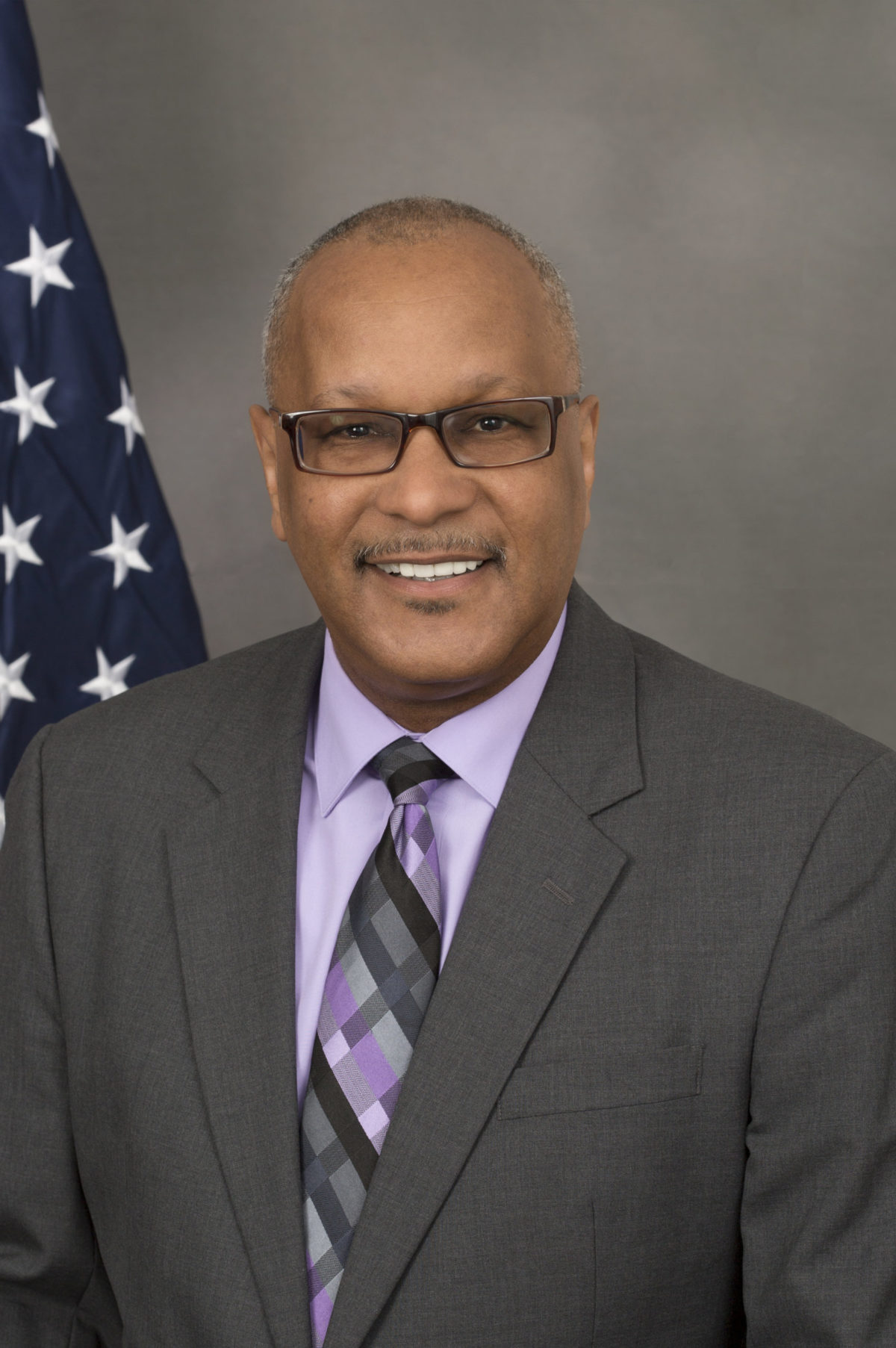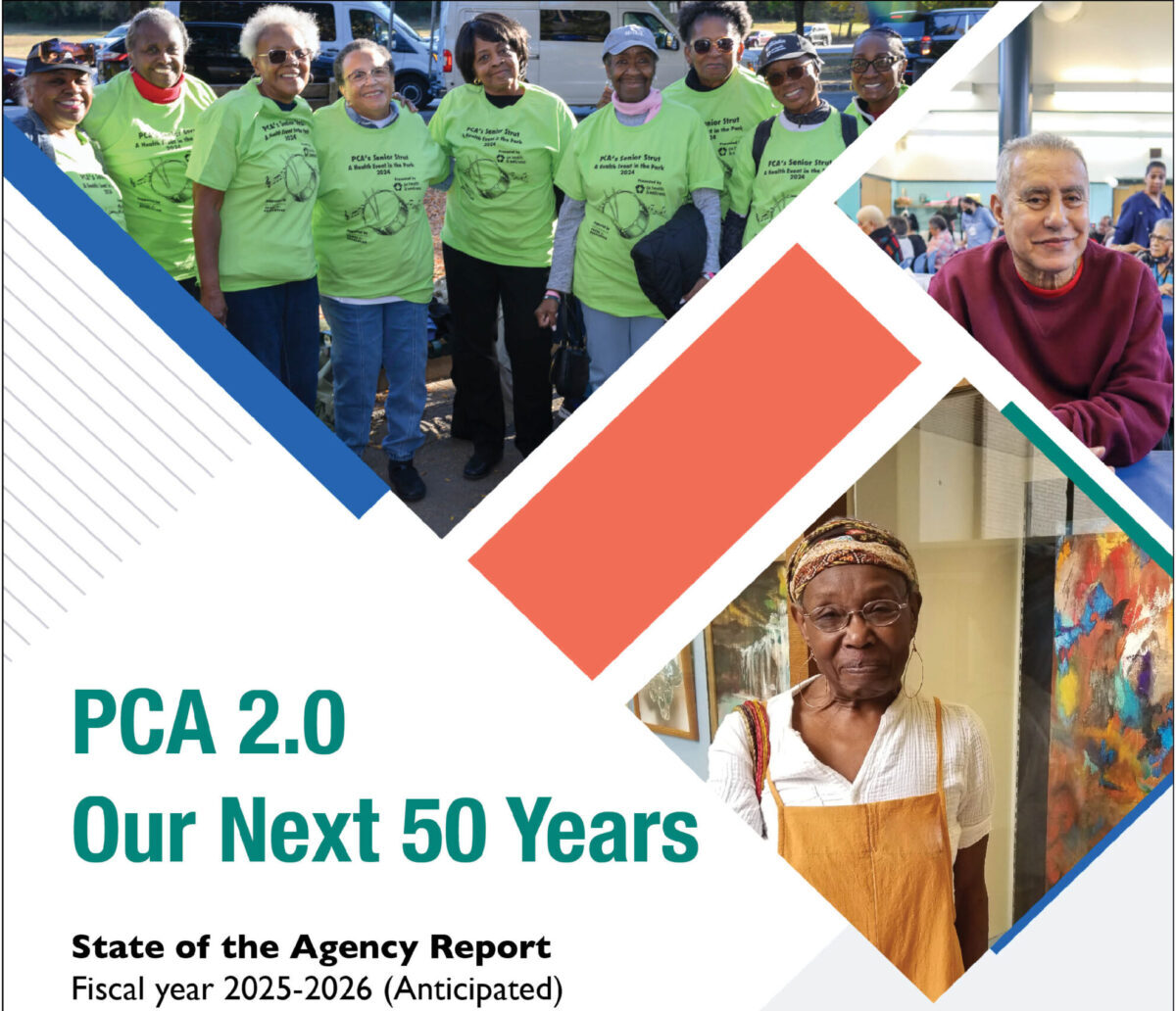Falling in love with the field of aging
Nearly 40 years ago, Edwin L. Walker “Fell into the field of aging, then fell in love with it.” Walker’s wife was chronically ill, and he needed a job that provided health insurance. He was hired by the Missouri Division of Aging and was new to the field of aging services. His first responsibility there was to monitor the state’s Area Agencies on Aging (AAAs).
“Before that job, I thought AAA was the automobile association,” Walker said. “When I started working in aging services and saw all the programs that were of great interest to me, I knew I’d made the right choice. I was raised partly by my grandmother so advocating for older adults resonated with me.”
Now, as the Deputy Assistant Secretary for Aging, in the U.S. Department of Health and Human Services (HHS), Walker leads the Administration on Aging (AoA) within the Administration for Community Living (ACL) in advocating at the federal level on behalf of older Americans. He serves as the chief official responsible for implementing aging programs, policies and operations throughout the country.
“We do that primarily through implementation of the Older Americans Act (OAA), the Elder Justice Act and sections of the Public Health Service Act,” he said. “We relate directly through states, tribes, AAAs and our national network of service providers.”
A Milestones reporter interviewed Walker about his experience working in aging services and the services available to provide for our nation’s older adults:
How is the AoA planning for the aging of America?
We need the broader policymakers to understand the great population shift that is about to occur. By 2030, all baby boomers will be at least 65. At that point, 1 in 5 Americans will be of retirement age. This is a demographic phenomenon that is occurring all over the world. For the first time, we will have more older than younger people. All our programs will be increasingly challenged. We should be thinking about long-term care in a way that we have never before. We need to invest in public and private policies in ways that we have never before. One example is HHS’ Healthy People initiative, which focuses on advancing the science of healthy aging and promoting it. Health promotion and injury prevention are key components of the AoA’s evidence-based interventions implemented throughout the country. We work collaboratively so that we can bring about behavioral change with people to improve their health.
How can we reframe aging and address ageism?
In the aging field, we all have a responsibility to combat the issues of ageism. According to OAA, we all should be effective and visible advocates for aging. People simply don’t understand ageism, don’t acknowledge it exists and aren’t aware of its negative impact. We have to broaden messaging and get others to understand and embrace the issues older adults deal with on a daily basis. We need to change the negative view and image of aging. Reframing aging will help bring about social change in the way society thinks about aging.
How can aging services support health care?
We need to get people to understand that we are the providers of the social determinants of health. (the conditions where people are born, live, learn, work, play, worship and age that a affect health, functioning and quality-of-life.) The health care world has discovered us. We are the completers. We are able to complete the efforts that begin in health settings. And our aging services providers help support good health outcomes by assuring older adults can get their prescriptions filled, eat nutritious meals, and receive services at home to maintain and regain their health and independence.
How can we improve aging services?
As it relates to aging services broadly, my tip is to not be stuck in an old construct or an old model. Instead, always seek innovations and always remain in touch with the changing trends and forces within your community so that we can always be on the cutting edge. We can be assured that we’re providing the kinds of services and supports that people need at any point in time.
How can older adults prepare for their own care?
My answer is directed at all people of all ages, and it’s very simple: planning over the course of your life. Everyone wants to live a good, long, quality life. Well, if we make adequate plans over the course of our lives and take actions over the course of our lives that are proven to be positive, you can greatly enhance your chances of having that good quality, long life. And that gets to the issues of successful aging, a concept that AoA has endorsed repeatedly.
What are the keys to successful aging?
Former Assistant Secretary for Aging Dr. Jeanette Takamura introduced a framework to successful aging that consists of five principles: financial security, planning for future transitions, remaining active, social connection, and spirituality.
Over the course of your life, you should be planning to be secure financially by saving and not just being a consumer. Think about being in an environment where there are age-friendly components, such as walkability and easy access to nearby services and supports. That way, when you are no longer working, you have the resources to continue living a good quality life.
Regular physical, social and cognitive activities keep your body, mind and spirit engaged and fit, so that you can maintain your ability to function for as long as possible. Having a belief in something beyond yourself brings about a greater degree of joy, happiness, and combats isolation and loneliness.
On the occasion of Philadelphia Corporation for Aging’s 50th anniversary in 2023, Walker said, “I have had the pleasure of partnering and being connected with PCA over the course of my career. PCA, perhaps, doesn’t understand its own significance in terms of what it represents in the state and in this nation. As one of the largest AAAs in the nation, older Philadelphians have a true advocate in PCA.”




